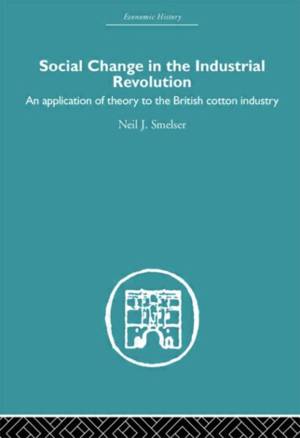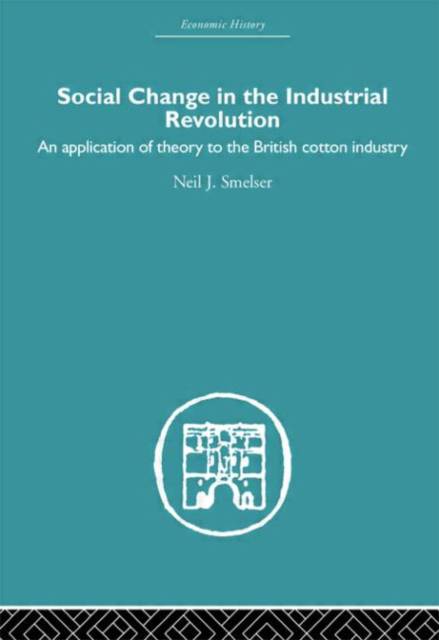
- Afhalen na 1 uur in een winkel met voorraad
- Gratis thuislevering in België vanaf € 30
- Ruim aanbod met 7 miljoen producten
- Afhalen na 1 uur in een winkel met voorraad
- Gratis thuislevering in België vanaf € 30
- Ruim aanbod met 7 miljoen producten
Zoeken
Social Change in the Industrial Revolution
An Application of Theory to the British Cotton Industry
Neil J Smelser
€ 88,95
+ 177 punten
Omschrijving
First Published in 2005. The following study analyses several sequences of differentiation and a attempt to apply social theory to history. Such an analysis naturally calls for two components: (1) a segment of social theory; and (2) an empirical instance of change. For the first the author has selected a model of social change from a developing general theory of action; for the second, the British industrial revolution between 1770 and 1840. From this large revolution is the isolated the growth of the cotton industry and the transformation of the family structure of its working classes.
Specificaties
Betrokkenen
- Auteur(s):
- Uitgeverij:
Inhoud
- Aantal bladzijden:
- 456
- Taal:
- Engels
- Reeks:
Eigenschappen
- Productcode (EAN):
- 9780415511674
- Verschijningsdatum:
- 22/06/2012
- Uitvoering:
- Paperback
- Formaat:
- Trade paperback (VS)
- Afmetingen:
- 156 mm x 234 mm
- Gewicht:
- 635 g

Alleen bij Standaard Boekhandel
+ 177 punten op je klantenkaart van Standaard Boekhandel
Beoordelingen
We publiceren alleen reviews die voldoen aan de voorwaarden voor reviews. Bekijk onze voorwaarden voor reviews.








